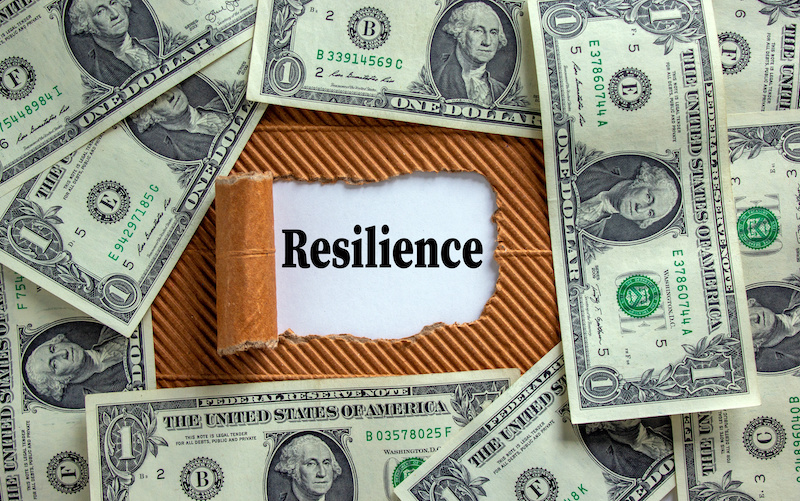Op-Ed: Pay No Attention to That Man Behind the Curtain
Key News ContributorMarch 4, 2019

Man silhouette [sic] behind curtains by Peshkova via Adobe Stock
By Matt Bramson
Contributor
Something is changing in our community. Our concept of citizenship is being altered by technological and social forces. The degree to which we engage in politics, the means we use to do so, and the actions we take as citizens are transforming. And it’s affecting who our representatives are and how they behave. This is glaringly obvious on the national stage, but it’s also starting to creep into our little playhouse, Key Biscayne local government. Just a few short years ago Village government was far from center stage, but that has changed. Three trends are responsible:
- Social Media. Facebook is 15 years old; Twitter is 12; WhatsApp is just 10. Social media as a major phenomenon is barely a teenager and that’s a challenging age. Twitter and Facebook have gone into politics in a big way. And the baby of the family, WhatsApp (which is owned by Facebook), is now hosting shoot-from-the-hip, group political debates.
- ProtestaPalooza. Protests and lawsuits, once last resorts, are now elevated in our thinking to be honorable and clever — even when, or sometimes especially when, they are not preceded by significant efforts at resolution and compromise.
- Emergency! Everything is an emergency. School facilities are an emergency. Bridge and road and park improvements are emergencies. And, of course, underground power lines are an emergency. This is a particularly insidious trend because emergencies can’t wait for thorough research, consensus building, or limited-scale testing — emergencies require bold, rapid, or even reckless action. Because often the worst thing you can do in a real emergency is nothing.
These ingredients combine to elevate the perceived importance of politics in our lives while requiring less commitment from us to feel involved. And this has both made it much harder and easier to be a political representative. Being a good political representative, defined as learning about issues, finding consensus, and devising and executing effective actions, has never been harder than it is today. And being a poor political representative, defined as identifying groups, finding controversy, and devising and executing protests and other forms of mayhem, has never been easier than it is today.
So what can we do? Are we doomed to divisiveness and paralysis on important issues? Condemned to be manipulated by masters of social media, protests, and leveraging our perception of urgency? Not necessarily. But it will require recognizing the forces that are at play and combating them.
- Put the “Social” back in “Social Media.” — It used to be a truism that politics and religion were inappropriate topics for social gatherings. This wasn’t simply because they were understood to be controversial and even emotional. It was also because they were understood to be complex. Social media is a social gathering — a place to share small talk, photos, jokes, and simple ideas. It’s not an ideal place to thoughtfully hash out complex issues. The sooner we recognize and honor this, the better.
- Respect the Process — Protests and lawsuits should be serious business because they imply that the established processes of bringing about change or resolution aren’t functioning. If a process moves too slowly or seems to be heading in a direction you disagree with, that’s not the same thing as claiming it’s not functioning. Avoid claims that are corrosive. Before joining a protest or supporting a lawsuit, ask yourself whether you have personally made every effort within the process to bring about whatever change you desire. And if you haven’t, do that first.
- Trust yourself — Real emergencies are those you perceive directly. You don’t only hear about them on the news or see them portrayed in movies. Today’s technology can expose us to people, places, and things that broaden our perspective — but it can also distort our perception. There are lots of people eager to have you believe that something they want is an emergency for you. Be skeptical of “emergencies.”
Social media, the protest/lawsuit culture, and efforts to stoke our impatience can be seen as components of a loosely-organized business model. Engaging people and consuming attention, personal data, and ultimately money are the goals. We are being cynically and profitably manipulated by a small group of people with an understanding of human psychology — to the level of neurochemistry — and cutting-edge technology. They get better at it every day with advanced analytics and machine learning.
Like Toto in The Wizard of Oz, we must pull the curtain back and recognize what’s real and what’s an illusion created by wizards vying for our money and power. What’s real is that we have a wonderful community full of talented, passionate, and diverse (in every possible way) people. We the residents and our relationships are the Village of Key Biscayne. Because “Oz never did give nothing to the Tin Man . . . that he didn’t already have.



Responses
Manuel WSQF 94.5 FM Blink Radio
Mar 5
Matt, Your writing is well written but lacks the perspective of not living on the island before, during and post Incorporation as I have. The political discourse. and local politics in Key Biscayne can be labeled as “small town with small minds.” I remind you of the amateurism and lack of vision from many mutual friends who are elected to our Village Council but lack the bold vision to make hard unpopular choices. Fellow residents must take very seriously those of us who know what they are doing when they take upon ourselves to take to courts and spend their own money to get the job done. The perfect misguided sense of non-emergency was not accomplishing the chief demand dating back to the 1980s, the original grievance of not having an expanded KB Community School and Key Biscayne High School. Both were the principal goal of Incorporation movement. This was the case during the effort for building MAST by threatening to tie up the commencement construction of OCEANA if $9 million developer’s contribution was not dedicated to education facilities while presuming a conversion-to-charter at the KBK8 was not part of parallel agenda to force the County and Village to enter into ILA. The only considered emergency of the newly formed municipality was to build a 100% sewer system without septic tanks and removal asbestos pipes as the first priority while underground electric power was not considered an emergency at all, even after Hurricane Andrew in 1992, ravished this island in the first year of Incorporation in 1991. VKB was without our original tax funding from Miami-Dade County went the storm hit. Underground utility as non-important, was classic short-sighted approach considering the inflationary funding costs involved in such an undertaking. The complete lack of purpose of five elected councils to this non-emergency to a few elected and a Village attorney that outsourced legal counsel since incorporation has cost the taxpayer millions of dollars in infrastructure costs. The original bid for the underground electric grid was $4million 10 years ago without any action being taken; today the new bid is in excess of $20 Milion that now mandates floating the largest obligation bond in our city’s history. None of these factors was curtailed or minimized by Social media. Quite the contrary was simple cognitive dissonance of community and indifference of personal grievance and empathy for those doing hard work to benefit other people children. There can never be something wrong with being right. Even amongst the small minded.
The comments are closed.